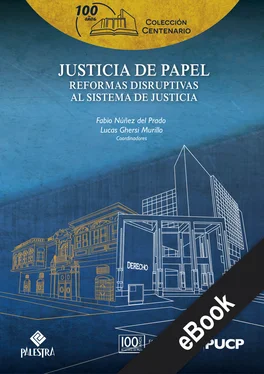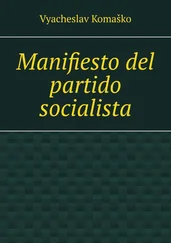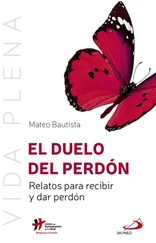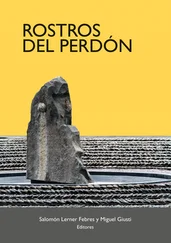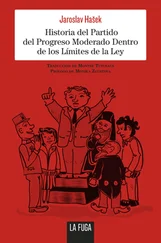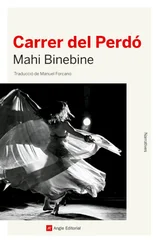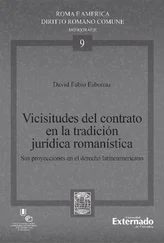55Cfr. Estavillo-Castro, 2010, p. 403.
56Las General Guidelines for the Parties’ Legal Representatives de la London Court of International Arbitration dispone: “A legal representative should not engage in activities intended unfairly to obstruct the arbitration or to jeopardize the finality of any award, including repeated challenges to an arbitrator’s appointment or to the jurisdiction or authority of the Arbitral Tribunal known to be unfounded by that legal representative.”
57El Código de Buenas Prácticas Arbitrales del Club Español del Arbitraje incluye una serie de directrices que podrían calificar dentro de este rubro, bajo el acápite “Deberes de Probidad”.
58La Regla 21 del “International Code of Ethics for Lawyers Practicing Before International Tribunals” de Bishop y Stevens (2011b) dispone: “Lawyers shall never knowingly make false actual representations to the arbitral tribunal.” También del mismo código: reglas 23 y 25 y reglas 9 a 11 de las IBA Guidelines on Party Representation in International Arbitration, Singapore Institute of Arbitrators Guidelines on Party Representatives Ehtics, Guidelines 2.1, 2.2 y 2.3., General Guidelines for the Parties’ Legal Representatives de la London Court of International Arbitration, párrs. 3 y 4.
59Código de Buenas Prácticas Arbitrales del Club Español del Arbitraje, numeral 4.3.
60La Regla 22 del “International Code of Ethics for Lawyers Practicing Before International Tribunals” de Bishop y Stevens (2010) dispone: “Lawyers may argue any construction of a law, a contract or a treaty that they believe is reasonable”. También: Código de Buenas Prácticas Arbitrales del Club Español del Arbitraje, numeral 4.2.
61Hanotiau, 2003, p. 270. La Regla 26 del “International Code of Ethics for Lawyers Practicing Before International Tribunals” de Bishop y Stevens (2010b) dispone: “Lawyers may not conceal, or advise a client to conceal, documents that are ordered to be produced by the arbitral tribunal. Lawyers have a duty to the arbitral tribunal to be honest with it and the opposing party and counsel with respect to documents that are requested by the opposing party or ordered to be produced by the arbitral tribunal.” También: IBA Guidelines on Party Representation in International Arbitration, regla 12, 14, 15, 16 y 17, General Guidelines for the Parties’ Legal Representatives de la London Court of International Arbitration, párr. 5.
62IBA Guidelines on Party Representation in International Arbitration, regla 13: “A Party Representative should not make any Request to Produce, or any objection to a Request to Produce, for an improper purpose, such as to harass or cause unnecessary delay.”
63El Código de Buenas Prácticas Arbitrales del Club Español del Arbitraje dispone en su artículo 125 que: En relación con las solicitudes de exhibición de documentos, el abogado deberá abstenerse: a) De formular solicitudes para fines torticeros o alegando a sabiendas hechos falsos; b) De presentar objeciones a las solicitudes de la contraparte alegando a sabiendas hechos falsos; y c) De justificar la falta de entrega de ciertos documentos alegando a sabiendas hechos falsos.”
64Cfr. Estavillo-Castro, 2010, p. 406 (“(…) la intervención del abogado de la parte que ofrece el testimonio en la redacción o en la revisión de la declaración testimonial no es considerado contrario a la ética.”) También, El Código de Buenas Prácticas Arbitrales del Club Español del Arbitraje dispone en su artículo 128: “El abogado podrá colaborar con los testigos y peritos en la preparación de sus declaraciones e informes.”; IBA Guidelines on Party Representation in International Arbitration, regla 20.
65La Regla 7 de las IBA Guidelines on Party Representation in International Arbitration dispone: “Unless agreed otherwise by the Parties, and subject to the exceptions below, a Party Representative should not engage in any Ex Parte Communications with an Arbitrator concerning the arbitration.”, General Guidelines for the Parties’ Legal Representatives de la London Court of International Arbitration, párr. 6.
66La Regla 27 del “International Code of Ethics for Lawyers Practicing Before International Tribunals” de Bishop y Stevens (2011b): “Lawyers shall treat their professional colleagues, including opposing counsel, with courtesy and respect.”. De igual modo, los “Turin Principles of Professional Conduct for the Legal Profession in the 21st Century” enuncian como un deber de cooperación el siguiente: “A Lawyer has the right to work with and the duty to mantain solidarity with his or her Colleagues, regardless of national boundaries, in obtaining recognition of the Lawyer’s role and in affirming the principles of the profession and observance of its ethical rules.” También: Singapore Institute of Arbitrators Guidelines on Party Representatives Ehtics, Guideline 3.1.
67Ilustrativamente se ha señalado: “Incivility also carries high personal cost. Nothing is gained except hostility when attorneys behave poorly (…) And hostility has its consequences. “A recent Harvard study indicates that very angry men are twice as likely as less-angry men to suffer a fatal heart attack or stroke.” Association of Business Trial Lawyers, 2007, p. 3.
68Reproducen de manera similar aquellas contenidas en la regla 26 de las IBA Guidelines on Party Representation in International Arbitration
Justicia
Procesal Civil
El mercado de los litigios: hacia la implementación de instrumentos de private enforcement
The market for litigation: Towards the implementation of private enforcement instruments
Sergio García Long*
Pontificia Universidad Católica del Perú
Kevin Villanueva Sotomayor**
Pontificia Universidad Católica del Perú
A veces nos preocupamos demasiado en el reconocimiento formal de los derechos, pero no en su efectividad en la práctica.
Los autores explican los modelos de public enforcement y private enforcement que se utilizan en el derecho comparado, siendo el primero típico del Civil Law y el segundo característico del derecho americano.
Para destrabar los obstáculos del acceso a la justicia, reducir los costos de litigio e incentivar la interposición de demandas, se propone que los sistemas jurídicos del Civil Law reconozcan diversos instrumentos legales de private enforcement: (1) class actions, (2) contingent fees, (3) third party funding litigation, y (4) punitive damages.
*Abogado por la Pontificia Universidad Católica del Perú. Especialista en contratos, corporativo, fusiones y adquisiciones, financiamientos y arbitraje. Ha sido profesor adjunto en derecho de las obligaciones, responsabilidad civil, análisis económico del derecho y temas de derecho societario en la PUCP. Asociado en el Estudio Vargas Pareja.
**Abogado por la Pontificia Universidad Católica del Perú. Abogado en el departamento de litigios y arbitraje del Estudio Garrigues – Lima. Ha sido profesor adjunto en el curso de contratos en la PUCP
1. INTRODUCCIÓN
Para el historiador americano Lawrence Friedman es muy claro que si nadie ejecuta (enforces) el derecho, y las personas lo saben, entonces el derecho no tiene ningún impacto (2016, p. 113).
Por nuestra tradición civilista, la cual es de carácter deductivo, solemos pensar primero en las reglas de juego antes de empezar a jugar. Para nosotros la regulación siempre es preventiva. El legislador se pone en los zapatos de los ciudadanos y anticipa cuáles serían las mejores reglas para regular la conducta humana. Este paternalismo, en principio, se ve como algo bueno, pero el problema es que el legislador no puede saber —en toda su extensión— qué es lo mejor para los ciudadanos, o cómo estos reaccionarán en un caso en concreto.
Читать дальше
